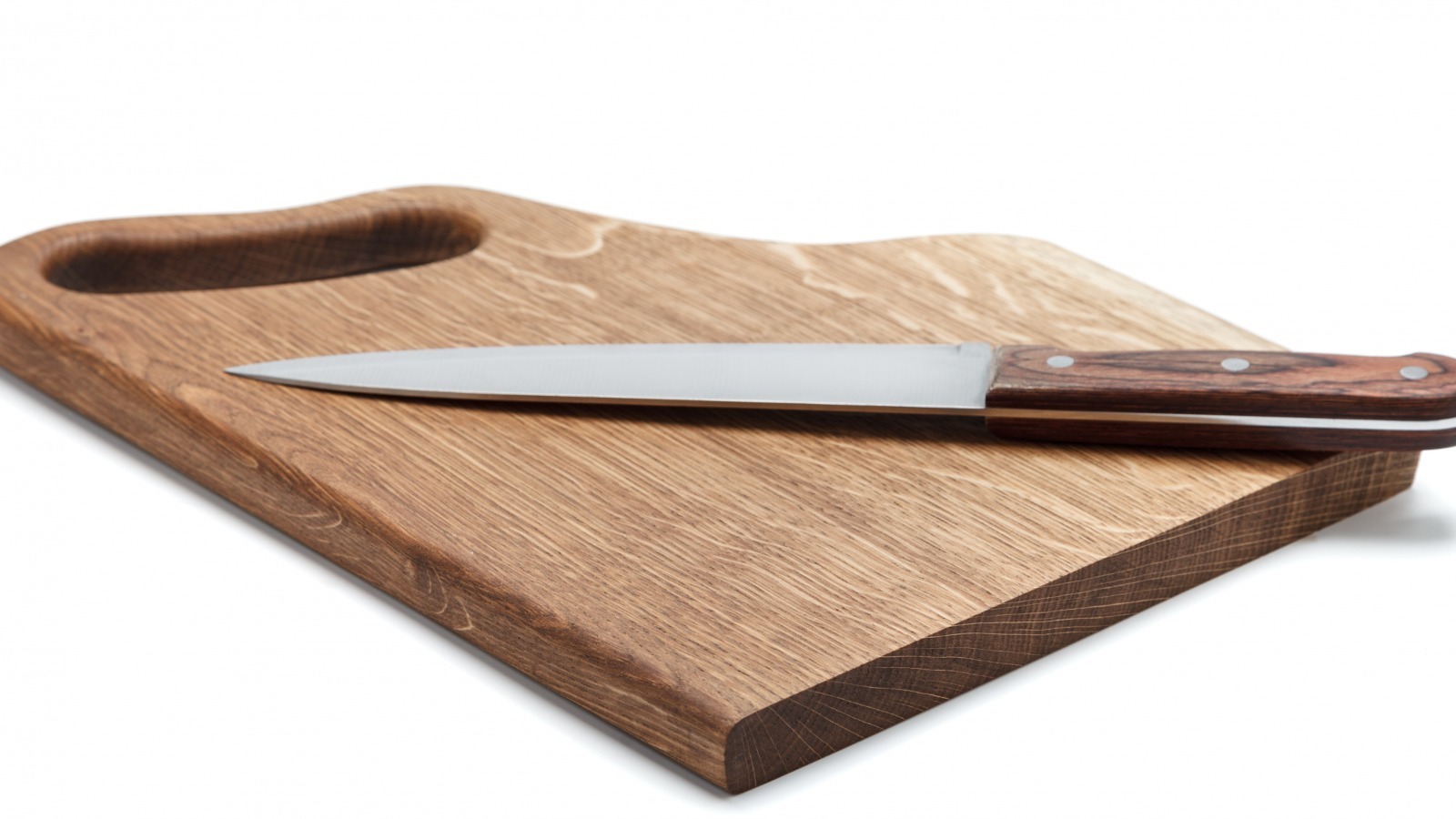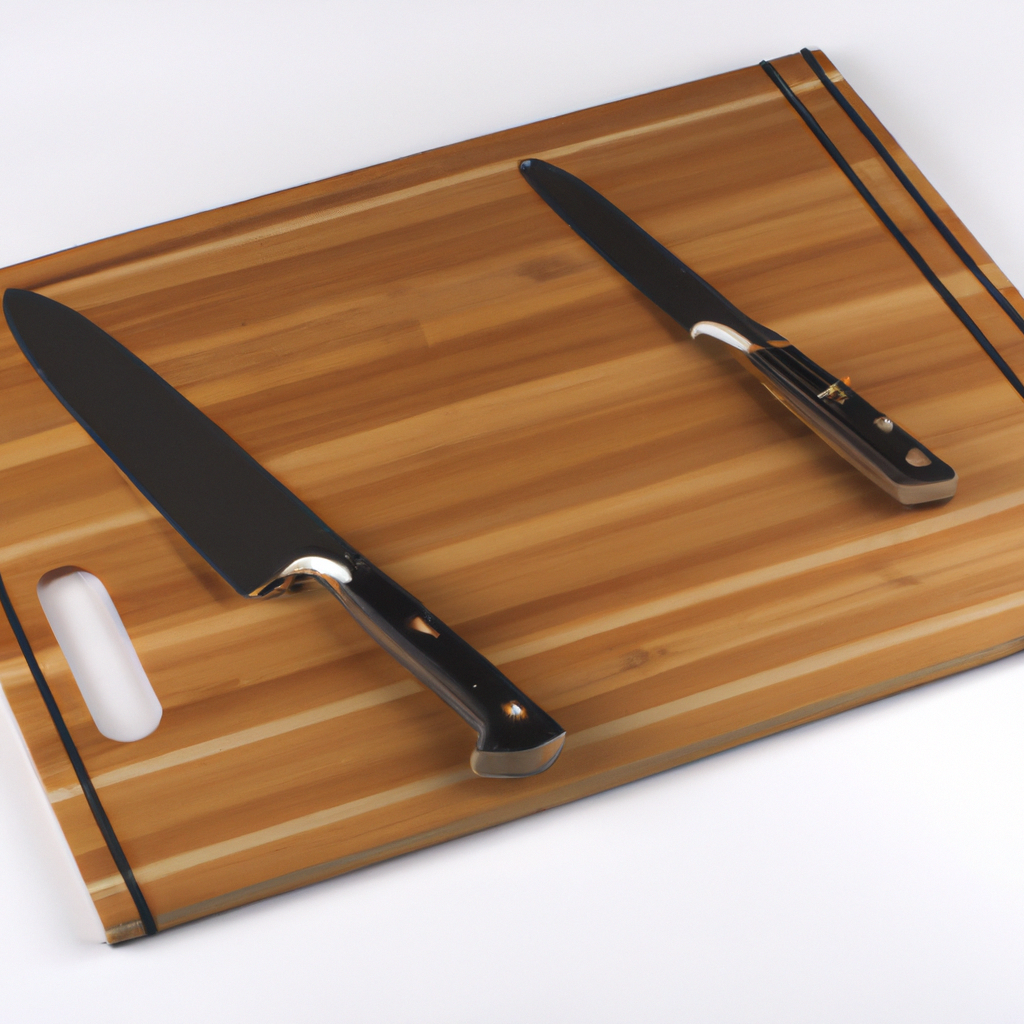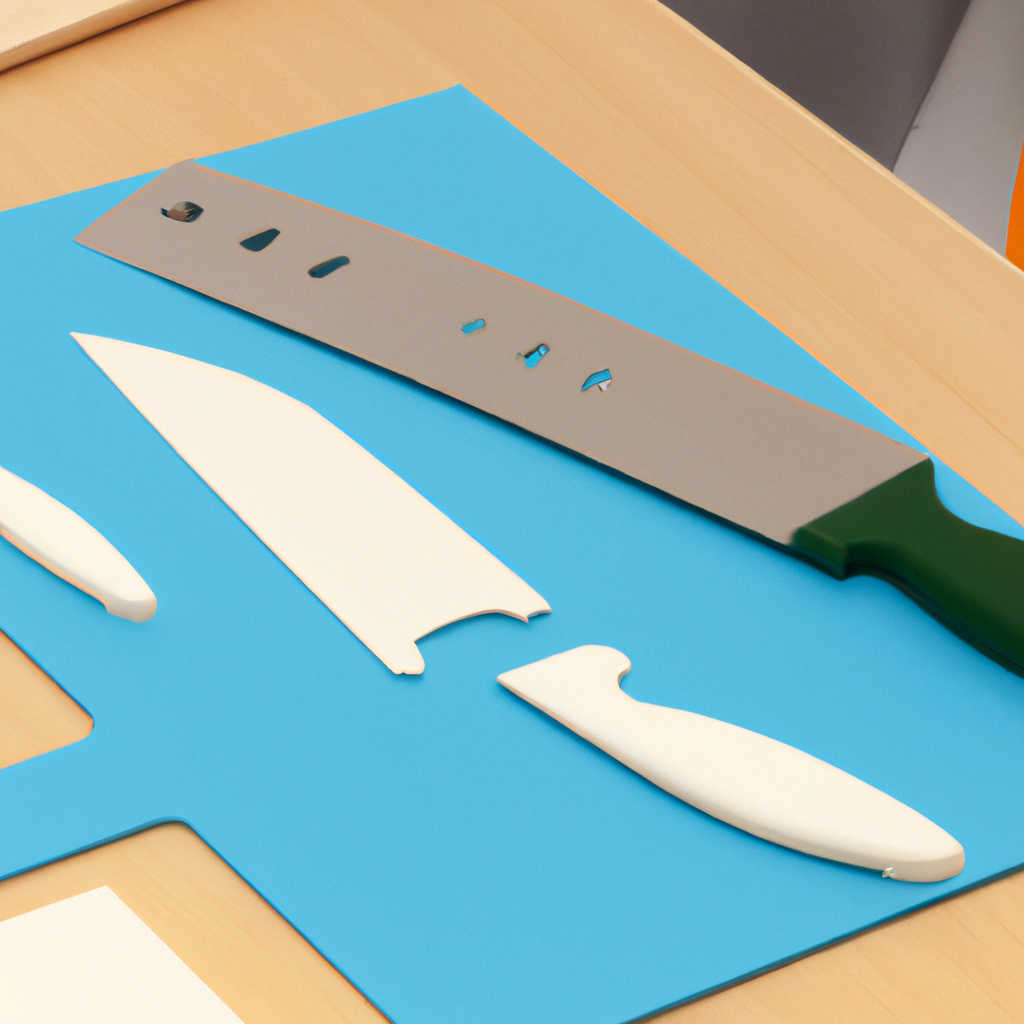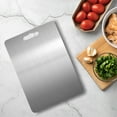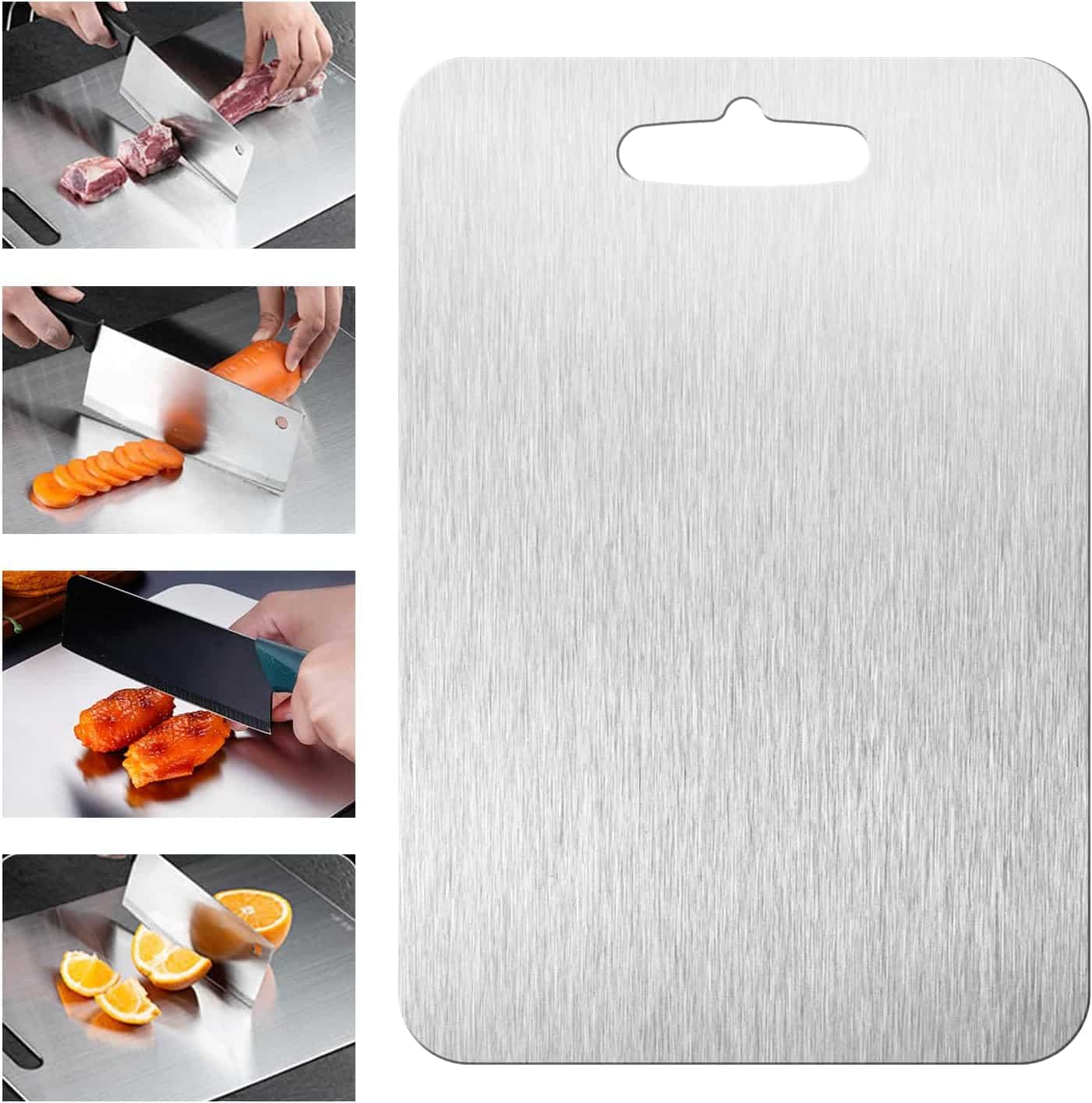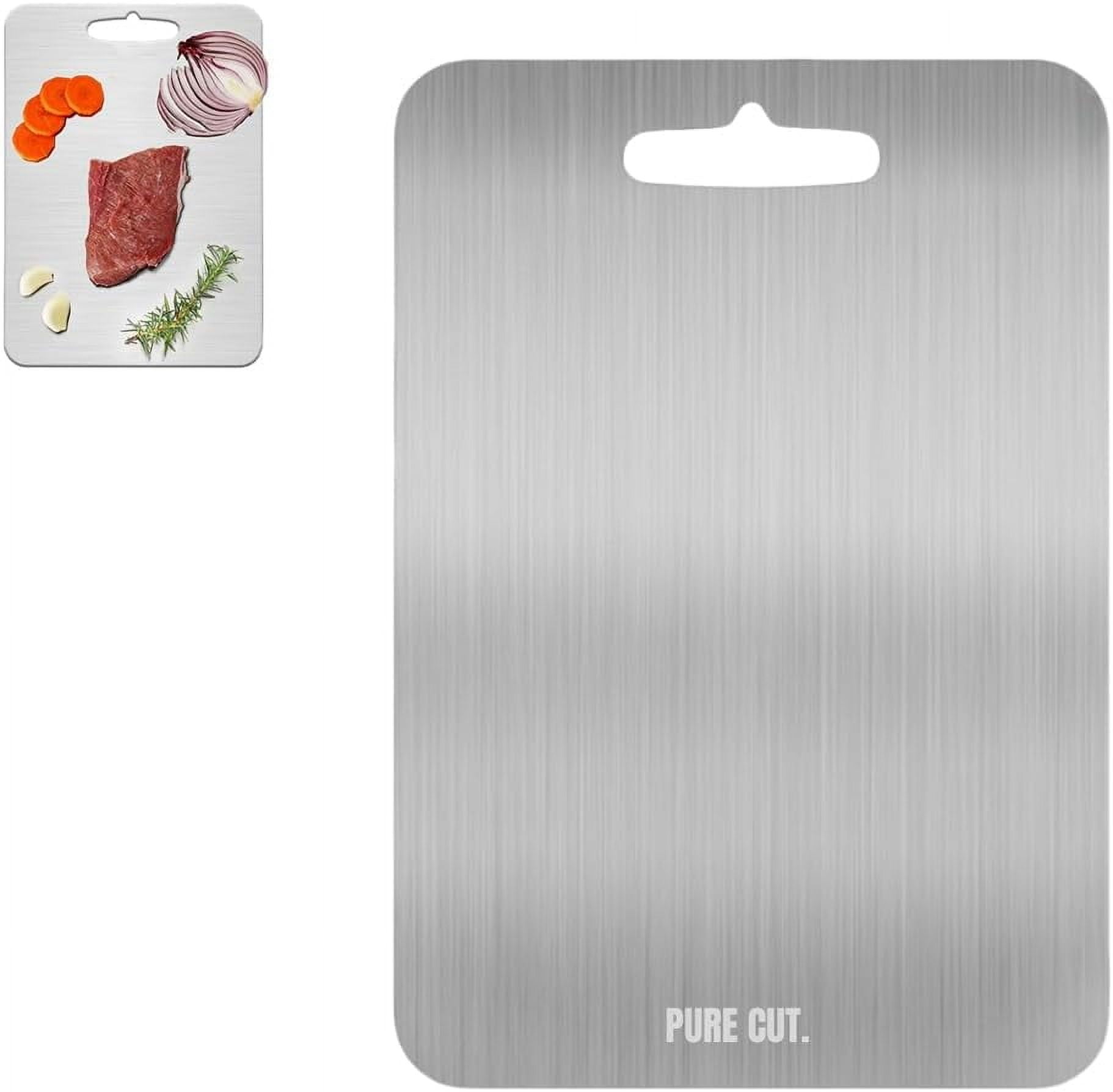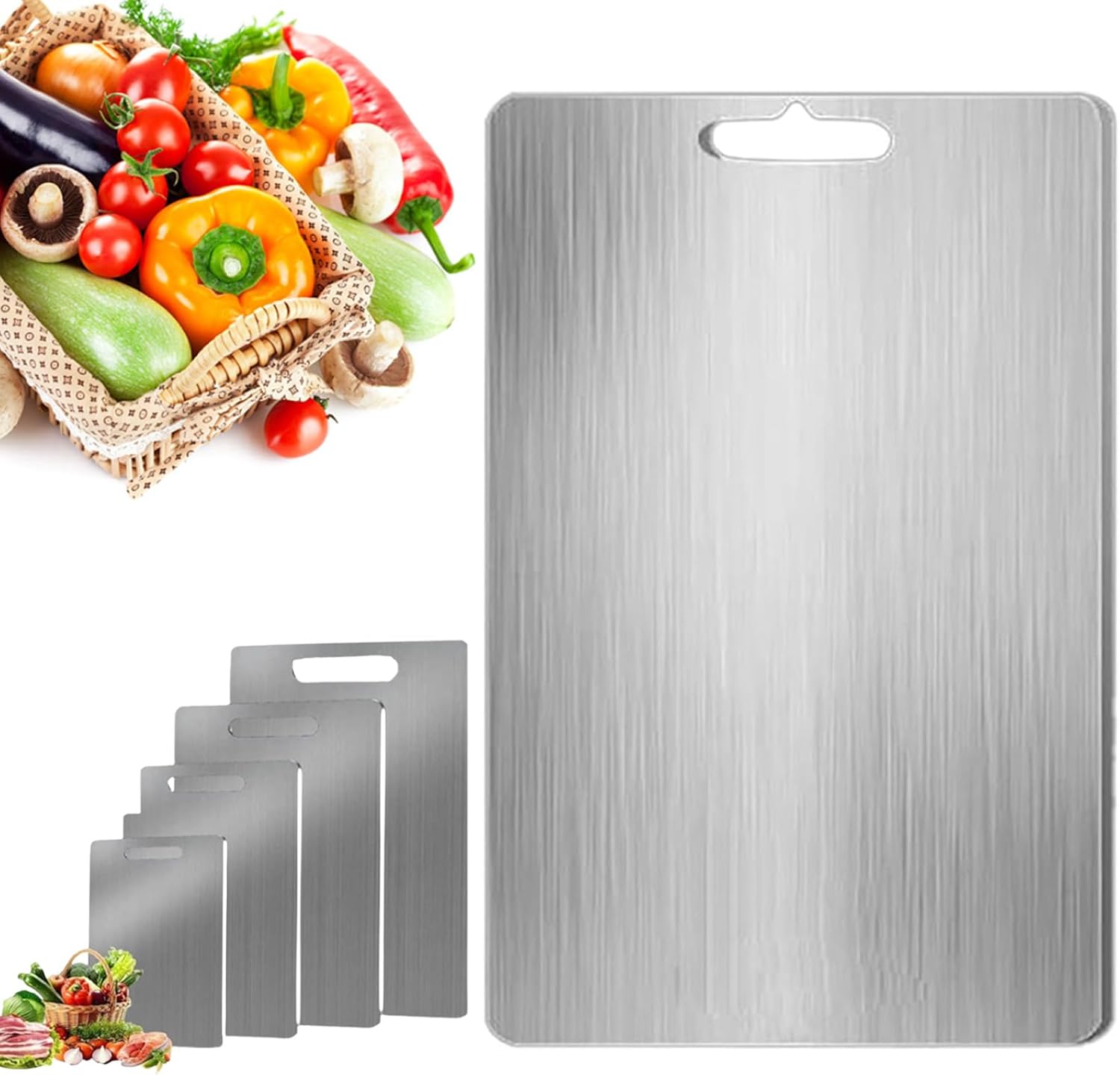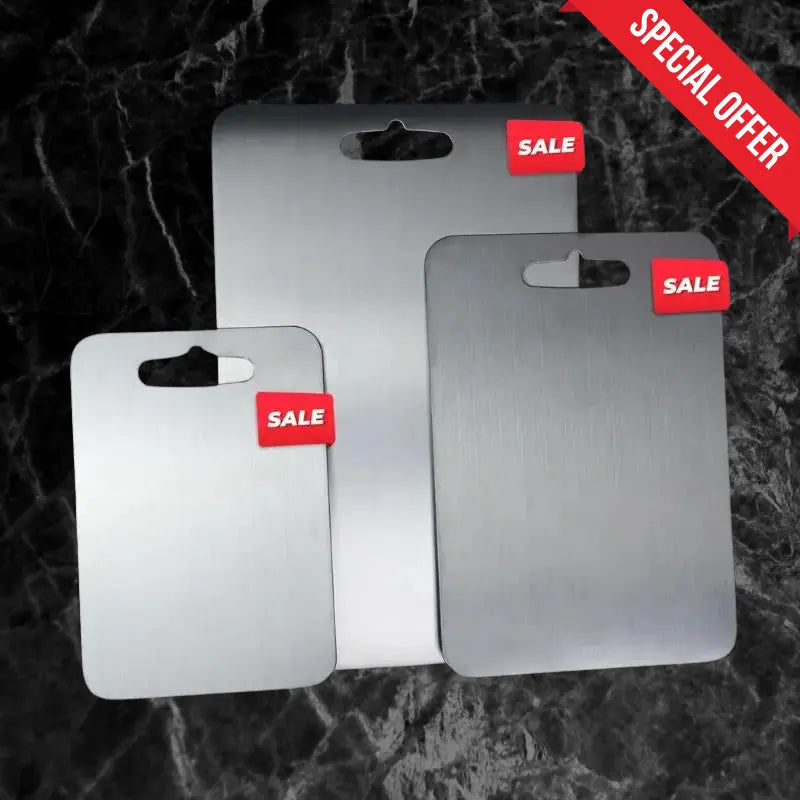Does A Titanium Cutting Board Dull Knives

The quest for the perfect cutting board is a perennial pursuit for home cooks and professional chefs alike. While wood and plastic have long reigned supreme, a newcomer has entered the arena, promising unparalleled hygiene and durability: the titanium cutting board. But with its arrival comes a crucial question: does this seemingly indestructible surface spell doom for your cherished knives?
The debate surrounding titanium cutting boards centers on whether the material's hardness accelerates knife dulling compared to traditional surfaces. This article delves into the science behind knife sharpness, the properties of titanium, and expert opinions to determine if titanium cutting boards are a boon or bane for your blades. We will explore the material properties of titanium, examine how different cutting board materials affect knives, and consult with metallurgists, chefs, and knife manufacturers to provide a balanced assessment. Ultimately, our goal is to equip you with the knowledge to make an informed decision about incorporating titanium into your kitchen.
Understanding Knife Dullness and Cutting Board Materials
A sharp knife is essential for efficient and safe food preparation. Dullness occurs when the knife's edge, a microscopically thin line of metal, bends or chips with use.
The key to a cutting board's impact on knife sharpness lies in its hardness relative to the knife's steel. A cutting board that is softer than the knife allows the blade to sink slightly into the surface, minimizing wear.
Common cutting board materials like wood and plastic offer this give, cushioning the knife's edge and prolonging its sharpness. Harder materials, however, can accelerate dulling.
The Properties of Titanium
Titanium is a metal renowned for its exceptional strength-to-weight ratio, corrosion resistance, and biocompatibility. These properties make it attractive for applications ranging from aerospace engineering to medical implants.
Commercially pure titanium, the type typically used in kitchenware, has a Vickers hardness (HV) ranging from approximately 70 to 200. This hardness is significantly greater than most woods and plastics used for cutting boards.
This inherent hardness is the primary reason for concern regarding titanium's potential to dull knives.
Expert Opinions: A Divided Camp
The question of whether titanium dulls knives is not met with a unified answer within the culinary and metallurgical communities. Some experts express strong concerns, while others believe the issue is more nuanced.
Metallurgist Dr. Emily Carter from the Institute of Material Science states, "The relative hardness of titanium compared to many knife steels suggests that it will indeed contribute to dulling over time. While not as abrasive as harder materials like glass, it's certainly more abrasive than wood or polyethylene."
Chef Jean-Pierre Dubois, a renowned culinary professional, reports, "I tested a titanium cutting board in my kitchen for six months. I noticed my knives needed sharpening more frequently than when using my wooden board. The difference was noticeable."
However, others argue that the impact is minimal if proper cutting techniques are used. Mark Thompson, a knife manufacturer at 'Sharp Edge Knives' argues, "The key is to avoid excessive force. Chopping aggressively on any hard surface, including wood, will dull a knife. With a titanium board, gentle slicing is paramount."
He adds, "The quality of the knife steel also plays a significant role. High-quality, harder steels are more resistant to dulling, regardless of the cutting board material."
The Importance of Cutting Technique
The way you use your knife plays a critical role in determining how quickly it dulls. Applying excessive pressure or using a sawing motion can damage the blade's delicate edge, regardless of the cutting board material.
Using a rocking motion, keeping the knife's edge in consistent contact with the board and avoiding forceful impacts will help to preserve sharpness.
Regular honing, the process of realigning the knife's edge with a steel, is also crucial. Honing can significantly extend the time between sharpenings, regardless of the cutting board you use.
Alternatives and Considerations
If you are concerned about knife dulling, consider the alternatives to both titanium and traditional cutting boards. Bamboo cutting boards are harder than many woods but still offer some give.
End-grain wood cutting boards, where the wood fibers are oriented vertically, are also gentler on knives than edge-grain boards.
Ultimately, the choice of cutting board depends on your priorities. If hygiene and durability are paramount, and you are willing to adjust your cutting technique and hone your knives regularly, a titanium cutting board may be a suitable option.
The Verdict: Titanium's Impact on Knives
While titanium cutting boards offer undeniable benefits in terms of hygiene and durability, the consensus leans towards them contributing to faster knife dulling compared to softer materials like wood or plastic. The degree of dulling depends on several factors.
These factors are; the hardness of the titanium alloy, the quality of the knife steel, and, most importantly, the user's cutting technique.
Therefore, if you opt for a titanium cutting board, be prepared to hone and sharpen your knives more frequently and refine your cutting technique to minimize wear.
Looking Ahead
Future research may focus on developing titanium alloys with modified surface properties that are less abrasive to knives. Coatings or surface treatments could potentially mitigate the dulling effect while preserving titanium's desirable qualities.
As consumer demand for hygienic and durable kitchenware continues to grow, manufacturers are likely to explore innovative solutions that balance performance and knife-friendliness. The perfect cutting board material may still be on the horizon.
In the meantime, informed choices based on scientific understanding and careful consideration of your needs and cutting habits will ensure that your knives remain sharp and ready for any culinary challenge.



